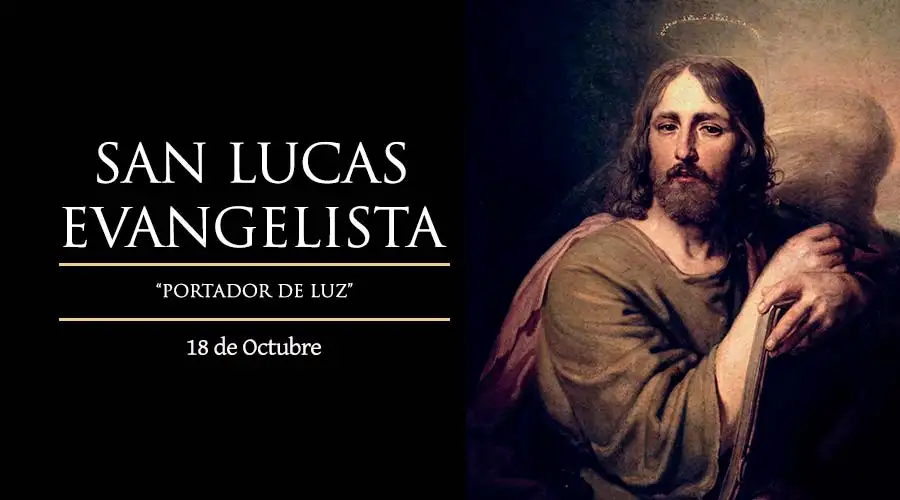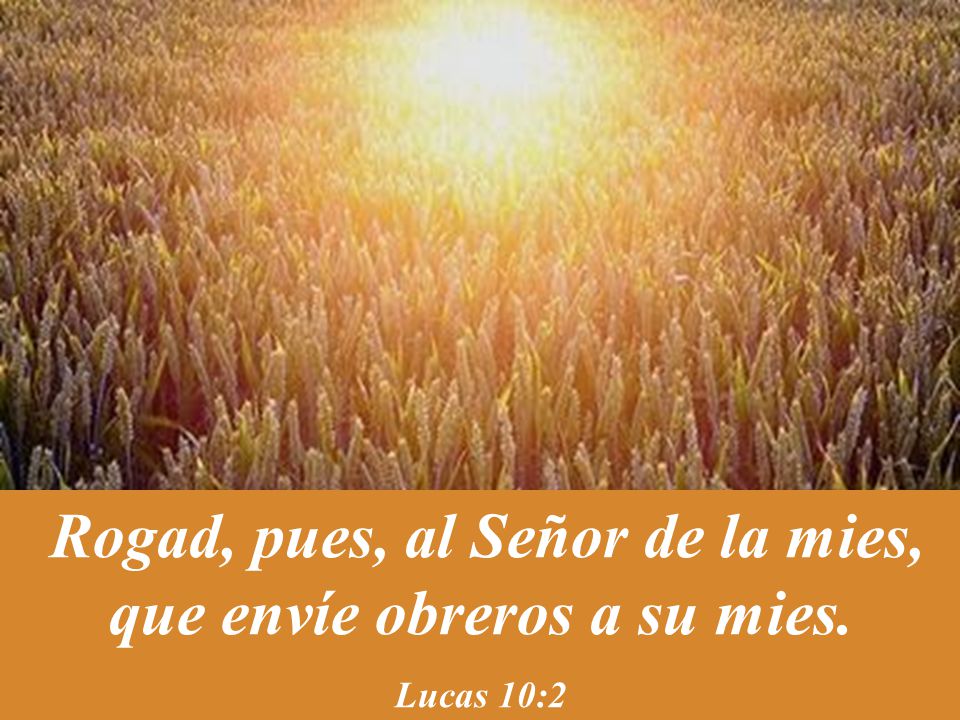TODAY'S GOSPEL REFLECTION

Today we celebrate the feast of St. Luke, Evangelist, author of the third Gospel, whom St. Paul addresses as "the beloved physician" (Col 4:14). Thanks to him we know some of the Lord's most emblematic and profound teachings, such as the parable of the prodigal son or that of the Good Samaritan. Throughout his Gospel, Luke makes known to us the merciful face of the Lord who seeks everyone, men and women, Jews and Gentiles, tax collectors and sinners. At the same time, it is the Gospel of prayer - the importance of which he stresses again and again (Lk 3:21; 5:16; 6:12; 9:18,28-29; 11:1; 22:41,44-45 etc.), as if to point out that the mission of searching for the lost sheep is only possible if there is a living relationship and dialogue with our Father God.
Luke is the only one who is with me
St. Paul presents to us the company of the evangelist Luke until the end of his death. Of all those who accompanied Paul in prison, only Luke was with him. Of course, this did not include other Christian friends he had in Rome (2 Tim. 4:21). Luke's company was a great comfort to the apostle. Together with Demas, he had also accompanied Paul during his first imprisonment in Rome (Film 1:24) (Col 4:14), but unlike him, Luke was still at his side in these difficult times. Moreover, it is very likely that as a "beloved physician" he attended to Paul's health in those days. And neither would it be surprising that in some measure he helped him in the writing of this letter and in everything concerning communication with the outside of the prison. How much it must have meant to the elderly Paul the company of this faithful companion in those days! In difficult times, the first option is usually to leave everything and run away; problems and difficulties fall on us like a crushing weight, leaving neither the mind nor the heart to function, only fear. Pablo gives a real lesson on how to look at things with perspective, not to feel personally disappointed and to really know who is there and who is worth following.
Society presents us with many offers, almost all of which are attractive, with facilities, quick goals to achieve, nothing to tie up, immediacy, and this is in contrast to the offers that we can receive from God, which are not for now but forever, which do not give a quick answer but a process that leads to fulfillment, that do not promise ease but happiness, that do not suggest something attractive, but rather some difficult situations that make us stronger in the face of adversities that, with God or without Him, will always exist, the question is how we face them and Paul has it clear, he received strength from the Lord, because at all times he was at his side. It is in the hands of our Father that we must place all our trust, as Paul did.
The harvest is plentiful but the laborers are few.
Today's Gospel tells us of the sending of the seventy-two disciples who are to announce the Good News of God in the towns, villages and cities of Galilee. The seventy-two are all of us who live after the Twelve. Through the mission of the disciples, Jesus tries to rescue the values of the tradition of the people that were being covered up by the double captivity of the Roman dominion and of the official religion. Jesus tries to renew and reorganize the communities so that they may once again be an expression of the Covenant, a sign of the Kingdom of God. For this reason, he insists on hospitality, on sharing, on welcoming the excluded. This insistence of Jesus is perceived in the advice he gave to his disciples when he sent them on mission.
At the time of Jesus there were various other movements that, like Jesus, tried to present a new way of living and living together, for example, John the Baptist, the Pharisees and others. They also formed communities of disciples (Jn 1:35; Lk 11:1; Heb 19:3) and had their missionaries (Mt 23:15). But as we shall see, there was a great difference:
The Mission: Jesus sends the disciples to the places where he himself has to go. The disciple is the spokesman for Jesus. He is not the owner of the Good News. He sends them out two by two. This favors mutual help, because the mission is not individual, but communitarian. Two people best represent the community.
Co-responsibility: The first task is to pray for God to send workers. Every disciple should feel responsible for the mission. For this reason he has to pray to the Father so that there is continuity in the mission. Jesus sends his disciples as lambs in the midst of wolves. The mission is a difficult and dangerous task. For the system in which the disciples lived and in which we continue to live was and continues to be contrary to the reorganization of people into living communities.
Hospitality: Contrary to the other missionaries, the disciples cannot take anything with them, neither bag nor sandals. But they must carry peace. This means that they must trust in the hospitality of the people. For the disciple who goes without anything, carrying only peace, shows that he trusts the people. He thinks that he will be received, and the people feel respected and confirmed. By means of this practice, the disciple criticizes the laws of exclusion and rescues the values of communitarian coexistence. Do not greet anyone on the way means that one should not waste time on things that do not belong to the mission, things of the world.
Sharing: when you enter a house, first say: Peace to this house. And if there are people of peace there, your peace will rest on them, otherwise it will return to you. He invites you to remain in the same house. That is, they should live together in a stable way, participate in the life and work of the people and live on what they receive in return, for the worker deserves his wages. This means that they must rely on sharing. Thus, through this new practice, they rescue an ancient tradition of the people, criticize the culture of accumulation that marked the politics of the Roman Empire and announce a new model of coexistence.
Table Communion: The Pharisees, when they went on a mission, were forewarned. They thought they could not rely on food that was not always ritually "pure". This is why they carried a saddlebag and money so that they could take care of their own food. Thus, instead of helping to overcome the divisions, the observance of the Law of purity weakened much more the experience of community values. The disciples of Jesus must eat what the people offer them. They cannot live separately, eating their own food. This means that they must accept to share the table. In contact with people, they cannot be afraid of losing legal purity. By acting in this way, they criticize the purity laws in force and announce a new access to purity, that is, to intimacy with God.
Welcoming the excluded: The disciples must cure sicknesses, heal lepers and cast out demons (Mt 10:8). This means that they must welcome into the community those who were excluded. This practice of solidarity criticizes the society that excludes and points to concrete ways out. This is what the pastoral care of the excluded, migrants and marginalized does today.
And the Gospel concludes with the wonderful words of announcing that "The kingdom of God has come to you". If they fulfill all these demands, the disciples can and must shout to the four winds: The Kingdom has come! To proclaim the Kingdom is not first of all to teach truths and doctrines, but to lead to a new way of living and living together. Today, on the feast of St. Luke the Evangelist, let us ask for many workers for the harvest, who know how to be closely united to God through prayer and fully ready to place themselves in his hands for the mission he has entrusted to them.

